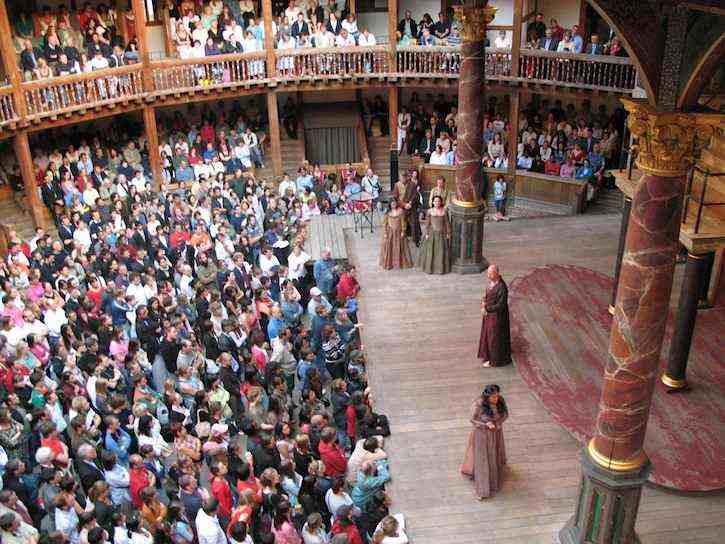
The question might come up this month, as we celebrate the 450th anniversary of the Bard of Avon’s birth, “What’s so great about William Shakespeare anyway?
The answer is simple. Everything…
Robert Graves, writer of the superb historical novel “I, Claudius”, once said: “The remarkable thing about Shakespeare is that he REALLY is very good, in spite of all the people who say he is very good.”
It cannot be denied that he demands some effort. As a professional linguist and life-long devotee, I assure you that it only takes a few pages when reading, or a few minutes when watching, to get used to his old-fashioned style. And then a world of unique brilliance opens.
What could be more basic than “To be or not to be”? And yet it sums up one of the greatest quandaries of human existence.
After 450 years he is still one of the most quoted authors. Where else could you find a gem like this: “Death lies on her like an untimely frost upon the sweetest flower of all the field.”
His heroes are larger than life and yet thoroughly convincing. Most of us have known what it’s like to be so insanely in love as Romeo and Juliet, we have nearly all felt Lear’s unbearable grief at the loss of a loved one. Many have experienced the madness of Othello’s jealousy or pondered the afterlife like Hamlet. If we are honest we recognize ourselves again and again, the good and the bad, the sweet and the bitter. No other writer has such breadth and depth.
 Very few great writers have his power of comedy as well as tragedy. His wordplay may be a bit too clever for some, but we can still laugh at plays like a Midsummer Night’s Dream or The Taming of the Shrew (political correctness aside). Falstaff is a genuinely funny, unforgettable character.
Very few great writers have his power of comedy as well as tragedy. His wordplay may be a bit too clever for some, but we can still laugh at plays like a Midsummer Night’s Dream or The Taming of the Shrew (political correctness aside). Falstaff is a genuinely funny, unforgettable character.
The greatest asset, to me, is his profound and sympathetic understanding of humanity. Lady Macbeth is one of the nastiest characters in world literature. And still he manages to make her pitiful, as she tries to wash imaginary blood from her hands. Macbeth’s brooding over life is without a doubt one of the best expressions of the dark, futile sides of existence. And yet, Macbeth, for all his failings, performs admirably at the end, and dies an honorable death.
Jan Bee Landman is a prize-winning author of horror, science fiction and mainstream stories. He has published in small magazines in the USA, Canada, Belgium and the Netherlands. A collection of his short stories was published in Dutch in 1994. He was also a teacher of English for 16 years. His work can be found at www.jlandman.nl
Photo: (top) The Globe theater in London, a reproduction of the actual theater in the round where the Bard’s plays were performed, and where he, himself, was a player.
[Editor’s note: Scholars are unsure of the Bard’s actual birthday, which is traditionally celebrated April 23, but they know he was baptized on April 26.]




















[…] week marks 450 years since William Shakespeare’s birth. This is the 2nd article in a series to honor the historic birthday of perhaps the greatest writer in the English […]
[…] week marks 450 years since William Shakespeare’s birth. This is the 2nd article in a series to honor the historic birthday of perhaps the greatest writer in the English […]